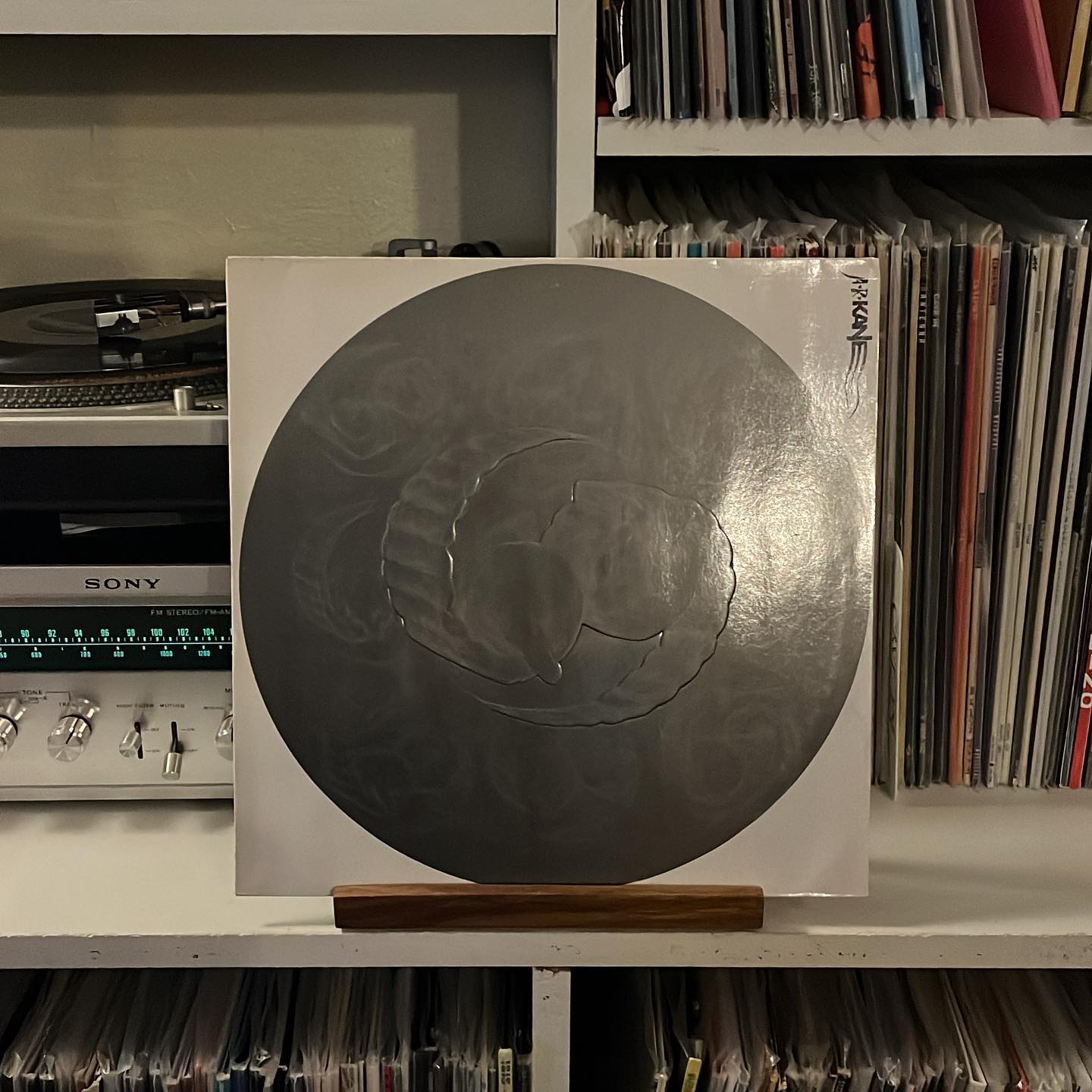
It’s said that there is a fine line between genius and madness. I’m not sure just how universally true that axiom is, but in the case of Sixty-nine, the debut full length from British dream pop duo (note: they coined that term themselves), they ride that line like Slim Pickens at the end of Dr. Strangelove.
The record is fiercely experimental—to the point that it’s almost a wonder that anyone agreed to release it. Nevertheless, the record became a huge influence on trip hop, post rock, and shoegaze.
I want to be clear that I love this record. There is nothing quite like it. But as is often the case with these sorts of artistic milestones, the scope of its influence may far outshine the record itself. Not everything thrown at the wall sticks. In fact, depending on my mood, this might strike me as completely transcendent, or as the stupidest fucking thing I’ve ever heard.The way the story is told, Alex Ayuli and Rudy Tambala met in primary school and bonded over being the children of African immigrants trying to navigate life in East London. They shared a love of afro-funk, jazz, and dub reggae, and were both captivated by a Cocteau Twins performance on Channel 4. Some time later, someone asked Rudy how they knew eachother, and he lied that they were in a band together that he described as sounding like “a bit Velvet Underground, a bit Cocteau Twins, a bit Miles Davis, a bit Joni Mitchell.” It was total bullshit, but the lie was interesting enough that a week later, they were contacted by a label and created a four-track demo to try to create the music he had invented.
After a couple singles and EPs of this brand of noisy experimentation, they were asked by 4AD label boss Ivo Watts-Russell to collaborate with fellow roster members Colourbox to create a house single, “Pump Up the Volume.” Despite the track’s massive success, A.R. Kane was unhappy with the entire process and left 4AD. They then holed up in their home studio and dove hard back into the dream pop of their earlier EPs.
The recording period has been described as a period of wild mania. They claimed to have listened to nothing but Miles Davis. Tambala recounts the pair laughing for hours on end as they ran different sounds through effects pedals and listened back to the results. He even described that period of time as being in an altered state. “Drug free, I hasten to add,” before clarifying, “well mostly.”
And that last part is the only believable part of the story, because there’s very little here that sounds like it wasn’t derived under the influence of indica. Caribbean rhythms play on drum machines over guitar parts that have been pulled through delay pedals over and again until they lose all shape. The vocals are vaguely pop based, even stretching into R&B at times, but the songs lack much structure at all. Instead, these are ambient soundscapes masquerading as songs, not unlike dub reggae’s abstract handling of its source material. Feedback is used liberally, a habit that earned them the nickname “the Black Jesus and Mary Chain.”
At its best, the results are spellbinding. Once “Crazy Blue” gets away from the goofy babbling and noodling of its opening seconds, it expands into a lush wall of noise that would inspire Kevin Shields. “Baby Milk Snatcher” is slinky and seductive, its delayed percussion laying the groundwork for trip hop’s similar mood. “Spermwhale Trip Over” is maybe the closest thing to a pop song, and it is pure bliss. “The Sun Falls Into the Sea” on the other hand is almost entirely abstract, its shimmering haze of ambience overpowering the vocals, which only last for a fraction of the song’s run time. Imagine some of the more formless moments on Sigur Rós’ Von and you’ve got an idea. At the other end of the spectrum you have the muscular “Suicide Kiss,” which makes the most deliberate use of guitar fuzz and feedback on the record.
There are a few absolute “what the fuck” moments in between though. “Sulliday” in particular is noisy and impenetrable, feedback and crooning vocals floating aimlessly above a heartbeat-like kickdrum sample for six-and-a-half minutes without ever coming into shape. “Dizzy” might have been one of the more blissful tracks if it weren’t for the shouted background vocals that punctuate the dreamy cello melody. “The Madonna is With Child” is similarly alarming, a brooding piano line holding steady as delay feedback oscillates on itself.
Still, those moments don’t totally spoil the disc. At times, I even really like them—including “Sulliday,” which is most frequently called out for being an album ruiner. It’s easy to see how this record—even the more abstract tracks were a big influence on bands like Animal Collective, Bark Psychosis, and Slowdive (Pygmalion in particular). And most of all, it’s incredibly fitting that they would call themselves dream pop. These songs are as vague and ethereal as dreams despite having the illusion of form.
Still, A.R. Kane would leave this bold experimentation behind them after this. In fact, it was their next record, the more dance-oriented “i” that would turn me off from them after seeing their name dropped as dream pop and listening to their most popular record on Spotify. Yet, I found myself continuing to circle around them until I discovered that it was this record that built that reputation, and I immediately tracked down a copy. While it might not get too many repeated listens, it is an essential record, even stripped of the shadow it casts behind it.